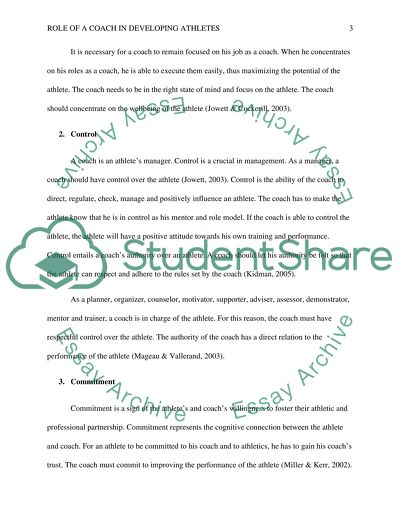Cite this document
(Role of a Coach in Developing Athletes Assignment, n.d.)
Role of a Coach in Developing Athletes Assignment. Retrieved from https://studentshare.org/psychology/1621418-what-role-does-the-coach-play-in-developing-athletes-and-what-importance-does-the-coach-athlete-relationship-have-on-performance
Role of a Coach in Developing Athletes Assignment. Retrieved from https://studentshare.org/psychology/1621418-what-role-does-the-coach-play-in-developing-athletes-and-what-importance-does-the-coach-athlete-relationship-have-on-performance
(Role of a Coach in Developing Athletes Assignment)
Role of a Coach in Developing Athletes Assignment. https://studentshare.org/psychology/1621418-what-role-does-the-coach-play-in-developing-athletes-and-what-importance-does-the-coach-athlete-relationship-have-on-performance.
Role of a Coach in Developing Athletes Assignment. https://studentshare.org/psychology/1621418-what-role-does-the-coach-play-in-developing-athletes-and-what-importance-does-the-coach-athlete-relationship-have-on-performance.
“Role of a Coach in Developing Athletes Assignment”, n.d. https://studentshare.org/psychology/1621418-what-role-does-the-coach-play-in-developing-athletes-and-what-importance-does-the-coach-athlete-relationship-have-on-performance.


